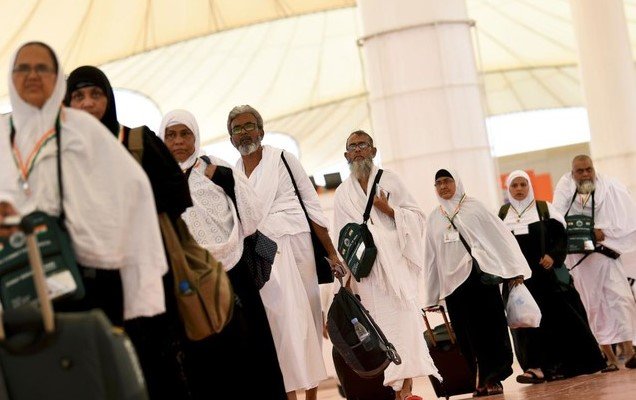Pakistan’s lapse of 67,000 private Hajj slots has ignited controversy at home, even as the Saudi government holds firm that its pilgrimage policy applies uniformly to all nations. For thousands of hopeful pilgrims, it’s now a waiting game.
At a time when spiritual journeys hinge on swift coordination, bureaucratic delay has upended the hopes of tens of thousands. And this year, it’s Pakistan that’s taken the hit. Speaking at the National Hajj Conference 2025 in Islamabad, Minister for Religious Affairs and Interfaith Harmony Sardar Muhammad Yousuf addressed the elephant in the room — Pakistan’s forfeiture of 67,000 Hajj seats under the private scheme. And while he promised stellar arrangements for those still able to go, there was no firm assurance of a reversal on the lapse.
No Special Treatment, Says Riyadh
Saudi Arabia’s message is crystal clear: no country gets a special pass.
Minister Yousuf said that Saudi Arabia’s Hajj rules apply equally across the board. That means no one — not even Pakistan — gets an exception unless Riyadh decides to extend leniency for all. “If any country is allowed deadline relaxation, Pakistan will be considered too,” he said, keeping expectations tempered.
This time around, the Saudi authorities had finalized a February 14 deadline for submission of Hajj applications. Despite multiple rounds of lobbying by Pakistani officials, the kingdom hasn’t budged — not after that date.
Yousuf credited Deputy Prime Minister Ishaq Dar and religious scholar Hafiz Tahir Ashrafi for managing to squeeze in an extra 10,000 applicants past the cut-off. Still, that didn’t stop the remaining 67,000 from slipping through the cracks.

Finger Pointing and a Committee on the Hunt
Someone’s got to take the fall, and the Pakistani government seems to know it.
The Hajj quota crisis marks the first time in history that such a large portion of Pakistan’s allocation has lapsed. It’s a major embarrassment — and people want answers. Hafiz Tahir Ashrafi, who played a key role in mediating with Saudi officials, pulled no punches. “It is a bitter reality,” he said bluntly, before calling on the prime minister to take action against those who mishandled the process.
A committee is already in place, tasked with tracking down the negligence that led to the lapse. The message? This can’t happen again.
For context, here’s a quick breakdown of how the numbers played out this year:
| Quota Type | Allocated Seats | Status |
|---|---|---|
| Government Hajj Scheme | ~89,000 | Fully utilized |
| Private Hajj Operators | ~90,000 | 67,000 lapsed |
| Total Pakistan Quota | 179,210 | ~112,000 confirmed |
Only the government-run scheme managed to fill all its slots in time. The private sector lagged behind — and paid the price.
What Went Wrong Behind the Scenes?
Communication gaps and policy shifts likely played a role.
This year, Saudi Arabia rolled out a new policy requiring quicker submissions, stricter operator accountability, and more tech-integrated systems. But Pakistan, stuck in older workflows and tangled bureaucracies, just didn’t move fast enough.
While Minister Yousuf emphasized the country had originally been assigned 102,000 slots, he said Pakistan managed to negotiate a final total of 179,210. Even so, mobilizing private operators to act swiftly proved challenging.
Meanwhile, some private Hajj tour operators are quietly venting frustration about unclear instructions and lack of timely coordination. In their view, the government’s slow relay of Saudi deadlines left them scrambling.
What’s Next for the 67,000 Left Behind?
A refund is coming, but that’s cold comfort for many.
For those who booked with private Hajj operators and paid in advance, the government has promised full refunds. That includes fees collected for accommodation arrangements in Makkah, Madinah, and Mina.
Still, for thousands of faithful who’d been emotionally — and spiritually — ready, no refund can replace the chance to perform Hajj.
• Some families had saved for years.
• Many had sold assets to afford the trip.
• Others were traveling for the first time in their lives.
Saudi Praise, But An Appeal Too
Amid the frustration, there’s still immense respect for Saudi leadership.
Ashrafi and Yousuf both praised King Salman bin Abdulaziz and Crown Prince Mohammed bin Salman for maintaining what they described as world-class Hajj operations. Cleanliness, order, and digital infrastructure have improved significantly under their watch.
But Ashrafi had one final plea: he urged the Saudi leadership to personally look into the quota issue, hoping for some last-minute mercy. “We couldn’t adapt to the new Saudi policy in time — and that’s our fault,” he admitted.
